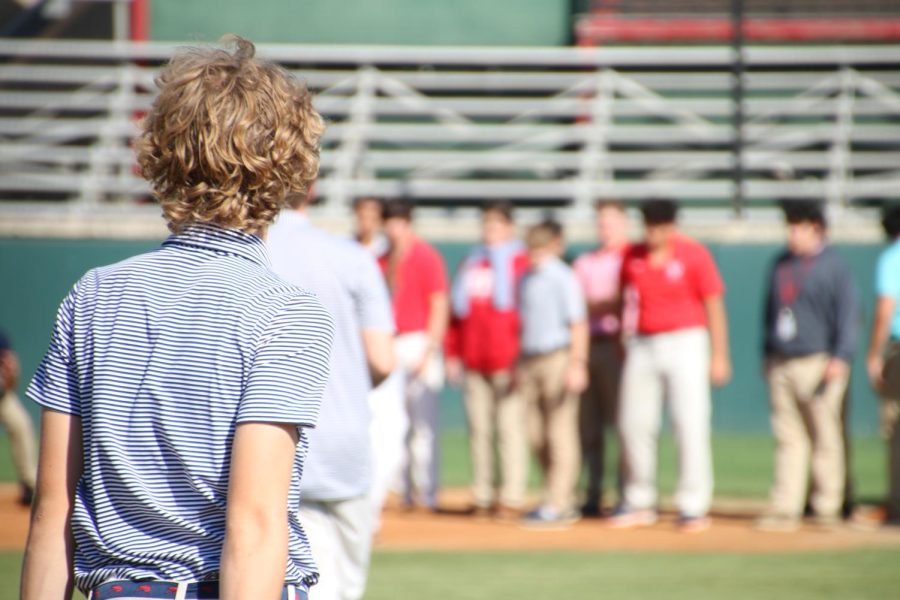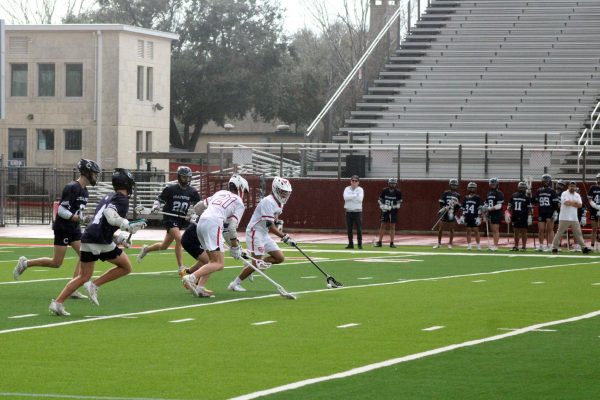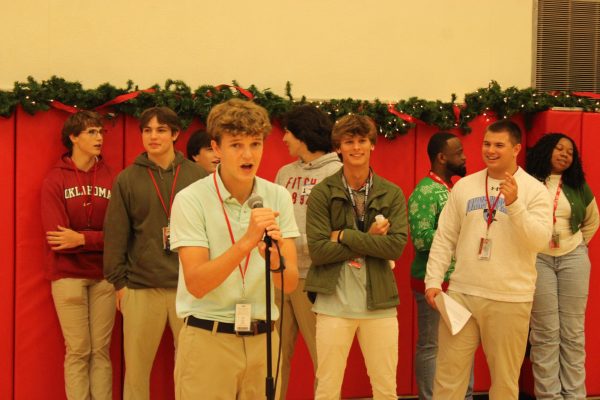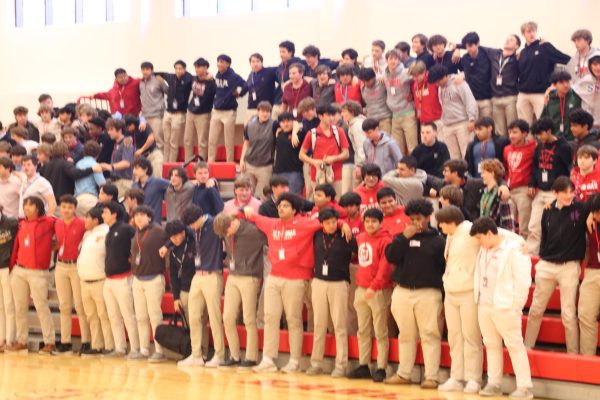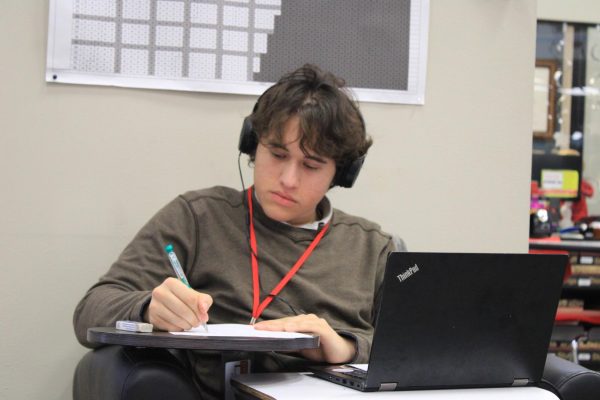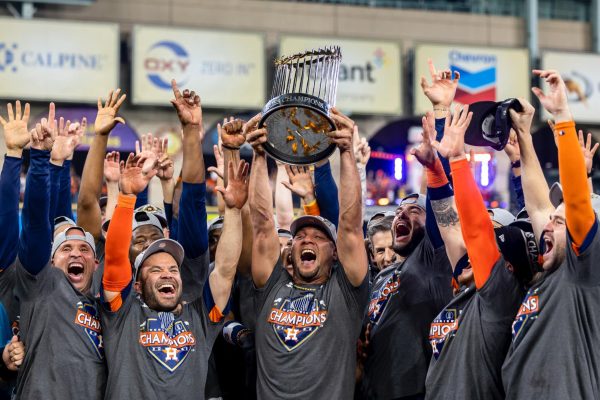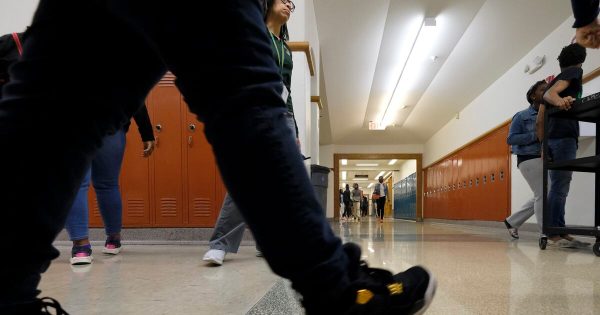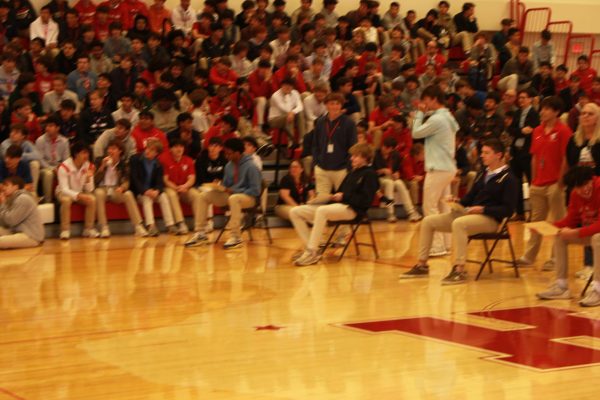A Change In Our Regularly Scheduled Program
On August 20, 2022, St. Thomas High School changed. The first House Communio day marked a shift in the schedule and an attempt to expand the STH brotherhood. After a successful Camp Aquinas, the Senior Leaders were tasked with leading their house homerooms through enrichment activities and games. Many houses decided to challenge other homerooms in a fantasy football league and paper airplane contests. While others played kickball, dodgeball, and even human foosball. This monumental change came with many protests and difficulties.
Being unsure of this new program, many skeptical students complained that their opportunities to do homework and their chances to have their own recreational activities were replaced with useless, worthless activities.
“Communio time is good and fun but I would rather spend my time finishing up some homework in another class, studying for an exam or test, or working on a due project. With all the great aspects of communio time like bonding together and getting closer with each other, we could also do that in community time like playing video games together, eating breakfast together, etc. Community time, in my opinion, is better for all of us and I think most of my fellow Eagle brothers would agree with that,” Santiago Lamas ‘27.
Because Communio time is brand new, students are not buying into it. Because of this lack of desire and effort to participate, across all of the homerooms, students are often caught on their phones or doing their homework instead of actively participating. As House Magee faced off against House Allnoch in a dodgeball duel, Senior Segura confiscated a handful of phones because students were simply not interested. The students would rather have their community time back and enjoy their time away from classes, instead of being forced to participate.
Many of the Senior Leaders also believe that it is a waste of time as they struggle to plan and lead their homeroom through activities that their students refuse to participate in.
“I know I signed up for this work but the kids aren’t even showing interest. I try to be enthusiastic and inclusive in my planning but I seem to always fall short and the students are just groaning and complaining. It makes me want to give up as well.” Anonymous Senior Leader ‘23 said.
The Senior Leaders are students too. They have homework, tests, and projects. Yet, they are forced to take on additional responsibilities that previous Senior Leaders did not have to. Their energy and efforts have been washed away since Camp Aquinas; they no longer have the desire to keep going. Even those that try to implement this Communio system are struggling to keep all of their members involved. Simply put, all of the students believe it is easier to skip and avoid Communio Time.
On the other hand, firm believers in the program argue it is up to the Senior Leaders to plan out activities and games that can keep everyone involved and active, that these Senior Leaders signed up for the job and should fulfill their duties until the end of the year. So far, the problem is evident: there are too many students and not enough space to provide students with interactive and eventful activities. The most inclusive and active activities, such as dodgeball, kickball, or capture the flag, require a large amount of space. However, there are only a few spots available to use and, for the first four Communio meetings, many homerooms were unable to utilize these spaces because other houses had priority. This lack of space left many houses in their classrooms without a fully inclusive activity and, when students are in the classroom, it is so much easier for them to give in to the temptation of not participating. This limitation keeps the Senior Leaders from doing the best they can. They cannot do the job they signed up for if they do not have the resources available to keep everyone involved. Furthermore, no matter what, if the students refuse to participate and lack the energy to incorporate into the activities, the Senior Leaders cannot do anything further.
Although Communio time does have its benefits, many students struggle to find this time beneficial to them. They would rather invest their time to study, eat, and just enjoy time with their friends. This leads to an ineffective Communio time and a lack of participation in the students, leaving the Senior Leaders with the difficult task of motivating lackluster students.
Many Senior Leaders have also lacked the motivation to continue with this program after Camp Aquinas and have found the task meaningless. Currently, the students’ inclinations for a down period outweigh the Senior Leaders’ efforts to implement the new program. However, there is several different possible remedies for these difficulties.
It all starts with the Senior Leaders, there needs to be a higher emphasis on the responsibilities and a clear formula given to the Senior Leaders so that they are fully committed and are given the resources to succeed. Furthermore, there should be a clear schedule and cycle for each space on campus for the houses to utilize. Although there already exists a list of games, many are not inclusive or entertaining and, thus, disregarded, leaving the Senior Leaders to come up with weaker games. This can be easily fixed if teachers and Senior Leaders come up with a set list for the whole school in a collaborative way to ensue that the voice of the students is heard and they are excited for what is planned for them. This will definitely help students enjoy their Communios and develop that desired bond. On top of that, when the class of 2027 are senior leaders, they will have three years of Communio time under their belt and will be able to translate a stronger message of brotherhood. But, for now, the problems and complaints continue.

Thomas Pham is a senior and is returning for his second year on the Yearbook Staff as the Editor-In-Chief. After an introductory year in student journalism,...


